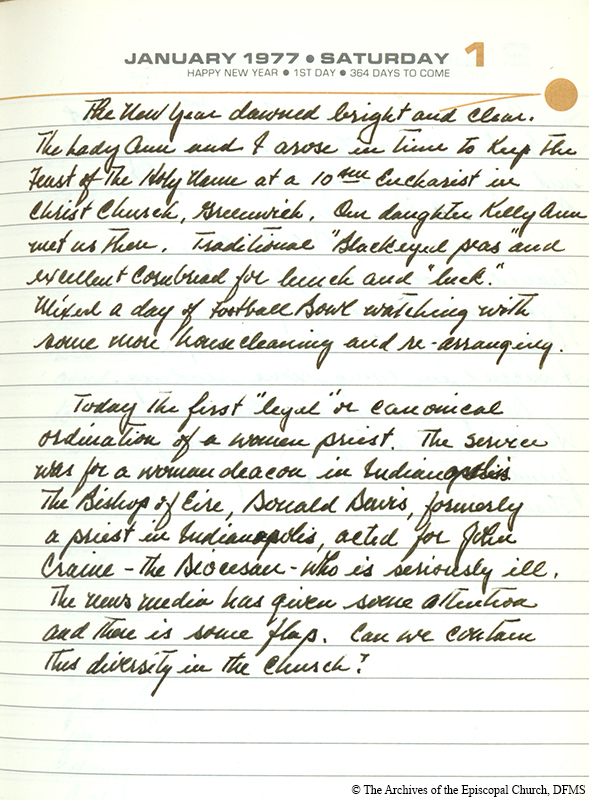Port St. Lucie

“Can we contain this diversity in the Church?” Allin writes about the first “legal” ordination of a woman in January, 1977.
Internal Struggle
Although the resolution to ordain women had been adopted by the 1976 General Convention, it was evident that Allin was still internally struggling with the debate on women and the pressure of his personal feelings about the issue when the House of Bishops met in October 1977 in Port. St Lucie, Florida. In his opening address to the Bishops, Allin expressed his feelings of opposition to women as priests. He asked,
“Can you accept the service of a Presiding Bishop who to date is unable to accept women in the role of priests?” 49
[Read Allin’s entire Port St. Lucie statement here.]
Although Allin had attempted to avoid being divisive and instead act as an agent of reconciliation on this issue, his own statement at Port St. Lucie portrays him as a Presiding Bishop who held a very clear opinion on the matter, which compromised his reputation as a consensus builder. Allin later attempted to explain that this statement was merely one of honesty, and he felt that he could not continue as Presiding Bishop if he were constantly worried about job security. Shortly after his statement at Port St. Lucie, Allin realized the offense it had caused and during an address to the Diocese of New Jersey, he attempted to assuage the situation, comparing himself to a character in an old joke who, when asked whether he had renounced the devil, responded, “No, I can’t afford to offend anybody at this point.”50
Statement of Conscience
To mollify bishops who disagreed, as Allin did, with the ordination of women, the House adopted a Statement of Conscience at the Port St. Lucie meeting. Representing the “mind of the House”, this document allowed for any bishop to hold an opinion contrary to the action of General Convention without being regarded as disloyal. The statement was intended to foster unity, healing, and reconciliation among members of the House and the Church who were still resistant to accepting the ordination of women. Instead, the statement served to exacerbate the situation and was criticized for paving the way for other conscience statements on divisive issues and for demonstrating an abdication of leadership by the House of Bishops.

